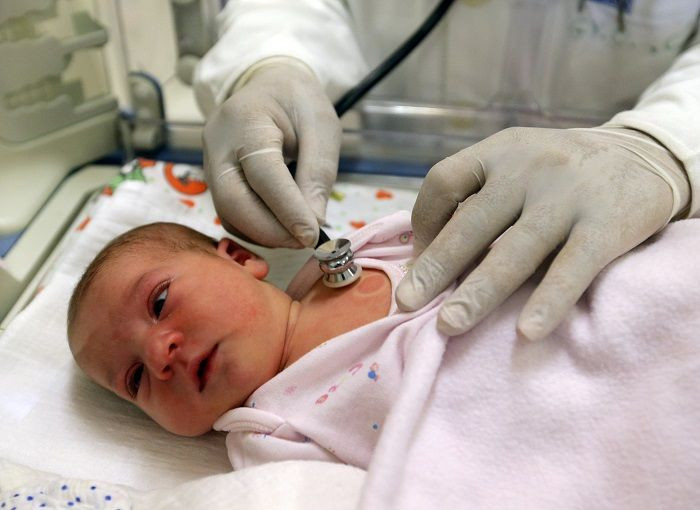Children Born With Low Birth Weight Face Increased Risk Of Death From Infancy Through Adolescence

Babies who are born at a low birth weight, or weigh less than 5 pounds, 8 ounces, are at risk for certain health conditions later in life, including diabetes, heart disease, and high blood pressure, according to Stanford Children’s Health. A low birth weight has also been linked to an increased risk of death in the first year of life, but new research published in the journal PLOS Medicine suggests this elevated risk lasts from infancy right on through to adolescence.
“We know low birth weight is associated with increased mortality rates in infancy; however, its association with mortality in later childhood and adolescence is less clear cut,” said Sailesh Kotecha, who led the study, in a statement.
Researchers from Cardiff University’s School of Medicine looked at the official death rates in low birth weight babies among more than 12 million births that took place between 1993 and 2011 in England and Wales. They found that out of this cohort of live births, there were nearly 75,000 deaths between birth and 18 years of age, with more than 57,600, or 77 percent of the deaths, occurring in the first year of life. The remainder of the deaths occurred between 1 and 18 years of age.
Death rates were higher for babies born with a low birth weight that continued through infancy and into adolescence when compared to those who were born with a normal weight. In fact, researchers found that death occurred 130 times more frequently among babies born with a low birth weight than those who had a normal birth weight in infancy.
Conditions of the nervous system and respiratory system were the leading causes of death in those who were born severely underweight, accounting for 20 and 16 percent of deaths, respectively. However, cancers and external conditions, including accidents, were the primary causes of death in the rest of the low birth weight group.
According to the Centers for Disease Control and Prevention, about 8 percent of babies in the United States are born underweight. Babies with a low birth weight have greater risk for complications, including low oxygen levels at birth, inability to maintain body temperature, and an increased risk for infection. Sudden infant death syndrome, which was responsible for 44 percent of unexpected infant deaths in 2014, is also a risk many low birth weight babies face. Babies are much more likely to be born with a low birth weight if they are exposed to illicit drugs, alcohol, and cigarettes during pregnancy. Mothers of lower socioeconomic status are more likely to have low birth weight babies as they are more likely to have poorer nutrition and health during pregnancy, according to Boston Children’s Hospital.
"This study is significant as it shows, for the first time, that low birth weight is associated with increased death rates from infancy right through to adolescence,” Kotecha explained. “The study reaffirms the need to tackle important factors such as maternal smoking and deprivation which are well known to contribute to low birth weight.”
Researchers said that reducing factors like maternal smoking and deprivation could help reduce the delivery of vulnerable infants born underweight.
Source: Watkins W, Kotecha S, Kotecha S. All-Cause Mortality of Low Birthweight Infants in Infancy, Childhood, and Adolescence: Population Study of England and Wales. PLOS Medicine. 2016.
Published by Medicaldaily.com



























